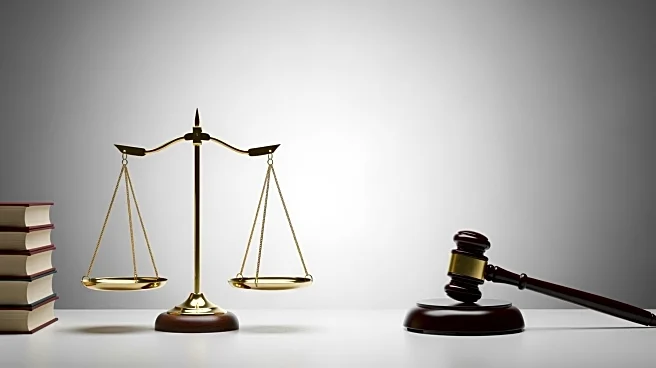What's Happening?
U.S. District Judge Patricia Tolliver Giles has issued a preliminary injunction requiring the Department of Defense to restore books and curricular materials that were removed from schools operated by
the Department of Defense Education Activity (DoDEA). This decision follows a lawsuit filed by the American Civil Liberties Union (ACLU) on behalf of several military families who opposed the removal of these materials, which they argue was an attempt to eliminate perceived 'wokeness' from educational content. The ruling applies specifically to five schools attended by the children involved in the lawsuit, and it mandates the immediate restoration of the affected materials while barring further removals. The ACLU has hailed this ruling as a significant victory for First Amendment rights.
Why It's Important?
The ruling underscores the ongoing debate over educational content and the influence of political agendas on school curricula. The decision to restore the books and materials is seen as a defense of free speech and educational freedom, particularly in federally operated schools. This case highlights the tension between government policies and individual rights, with potential implications for how educational content is managed in military schools and beyond. The outcome of this litigation could set a precedent for similar cases, affecting how educational institutions navigate political pressures and maintain diverse and inclusive curricula.
What's Next?
As the litigation continues, further hearings will determine the final outcome of the case. The Department of Defense may need to reassess its approach to educational content in DoDEA schools, potentially leading to broader policy changes. Stakeholders, including military families, educators, and civil rights organizations, will likely continue to monitor the situation closely. The case could prompt discussions on the balance between government oversight and educational autonomy, influencing future decisions on curriculum development in federally operated schools.
Beyond the Headlines
The case raises broader questions about the role of government in shaping educational narratives and the potential for executive overreach in public education. It also highlights the cultural and ethical dimensions of educational content, particularly in terms of representation and inclusivity. The controversy may lead to increased scrutiny of how educational materials are selected and the criteria used to evaluate their appropriateness, potentially impacting educational policy and practice in the long term.









